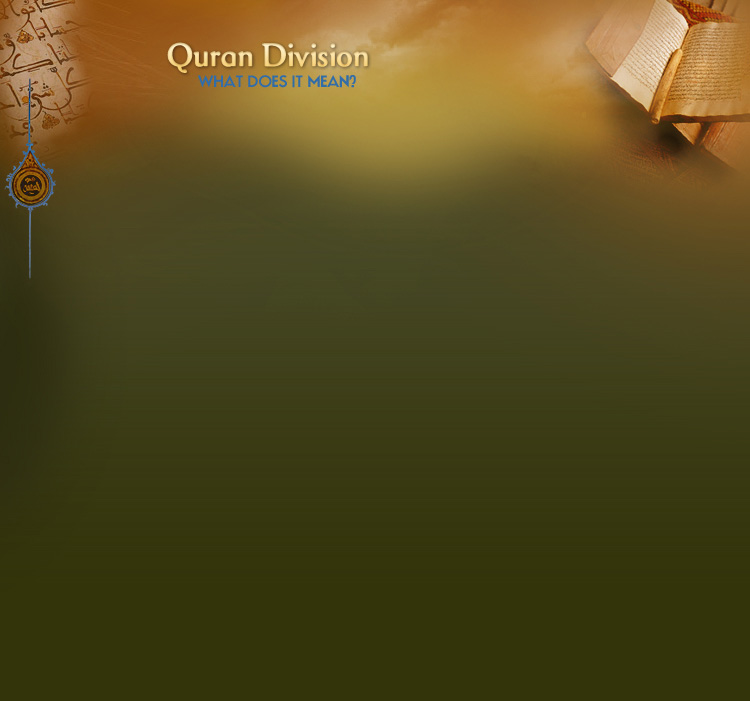
All
About The Quran A Source of Guidance
Quran (Divine Book) Quran
- Proof of Revelation What Others
Say Quran
Division?
Your Free Quran!
Get it here
Get it here
Sections, Surahs, Ayahs, and Make up
Reciting the Quran is the duty of every good Muslim on a daily basis. Whether in congregation or separately, every literate believing man, woman and child should be reading, learning and sharing from the Book of Allah.
For those who desire to complete their recitation or reading of the Quran within a certain time frame, they are most pleased to find the Quran is separated into thirty (30) even parts called "juz-un" in Arabic or Para in Persian (Farsi). It is also divided into seven equal parts. If someone reads a "juz'un" each day, in 30 day they will have completed the entire Quran in one month.
The seventh part of the Quran is called a manzil, which if read all the way through in one day will make the complete recitation of the entire Quran in only one week.
Ordinarily the quarters of each sipara (1/4, 1/2, 3/4) are also marked in Arabic language as Ar-rub', An-nisf and Ath-thalata.
Divisions according subjects are quite different. Quran is comprised of 114 surahs of unequal size. Surahs (chapters) are numbered and consecutive numbers are displayed just before the title of each surah. Each surah consists of ayahs (verses?) and there are a total of about 6,327 ayats in the entire Quran.
Surah (or chapter) Baqarah has 286 ayahs and that makes it the biggest of surahs in the Quran.
It is better to leave the words "surah"; "ayah" and even "Quran" in the Arabic language rather than attempt to translate them to words in English. This is better because they are technical terms used for Muslim's religious literature.
The ayat (similar to verse) is usually determined by the rhythm and cadence in Arabic Text. Sometimes an ayah contains more than one sentence or may even have many sentences within the ayah. A sentence may also be divided by a break in the ayah and you would have to read from the next ayah to complete the subject, or topic. However, there is usually intended in these cases, a pause in meaning at the end of the ayah.
There are also logical divisions of the surahs into sections to indicate divisions according to the meanings. There is a word for these sections in Arabic called "ruku" and it means bowing the head toward the ground in respect to Almighty Allah in the prayer.

